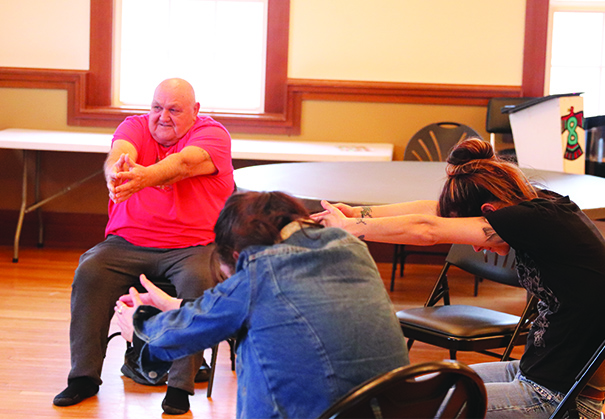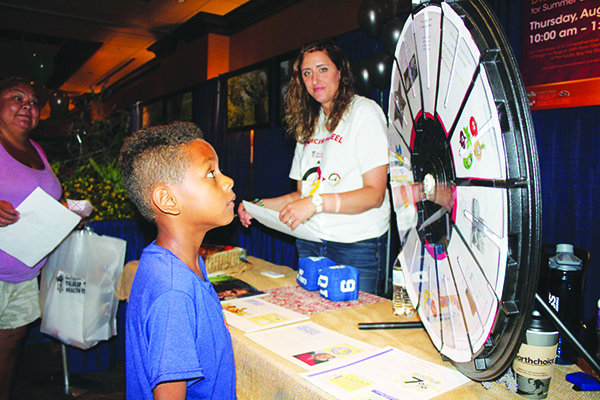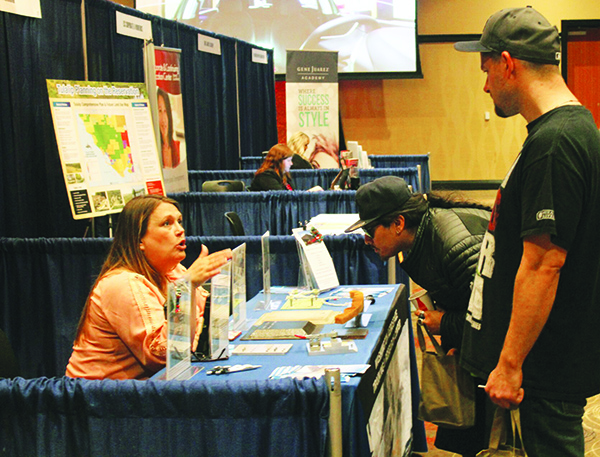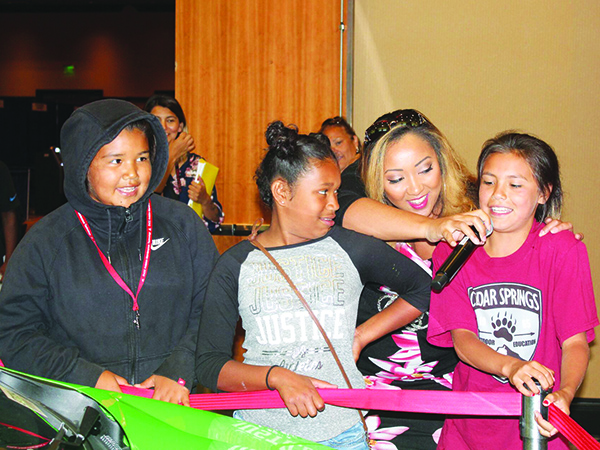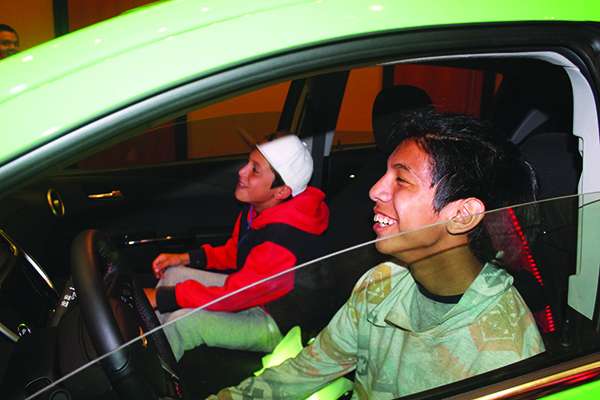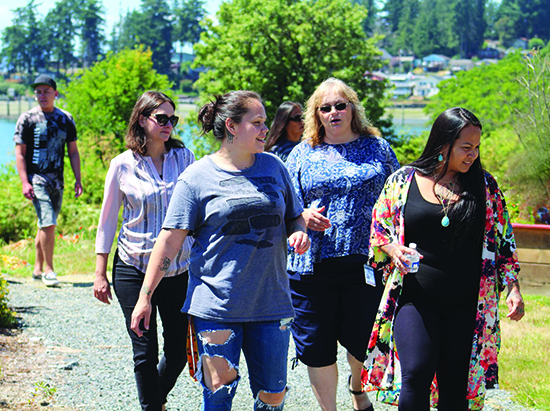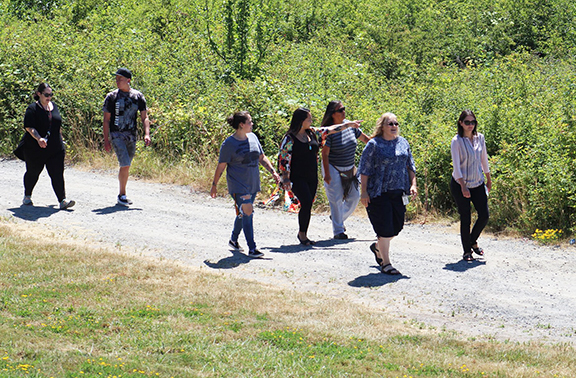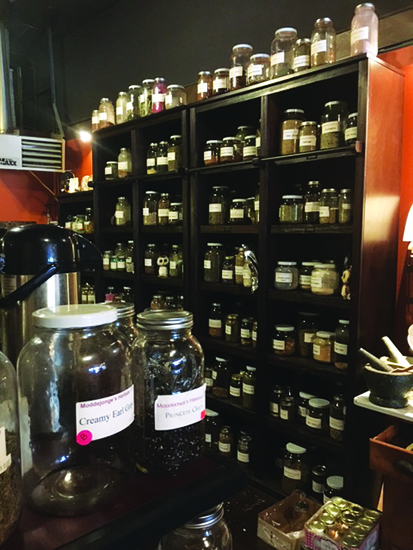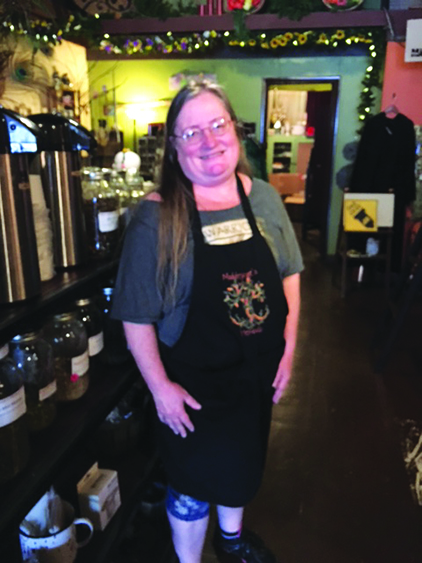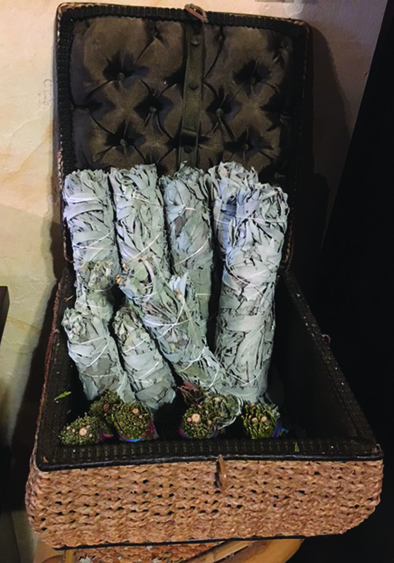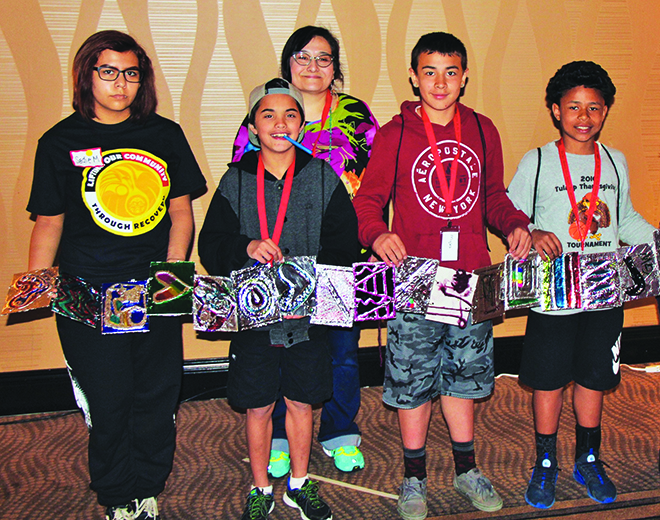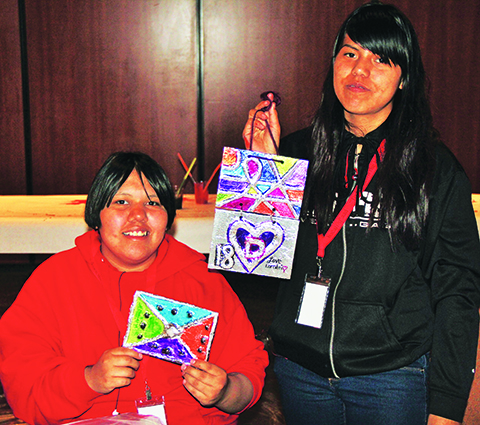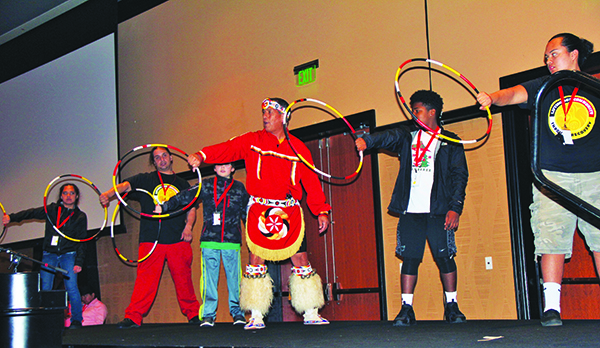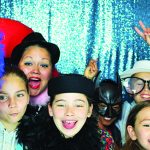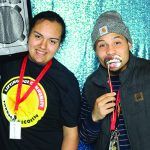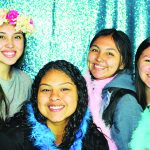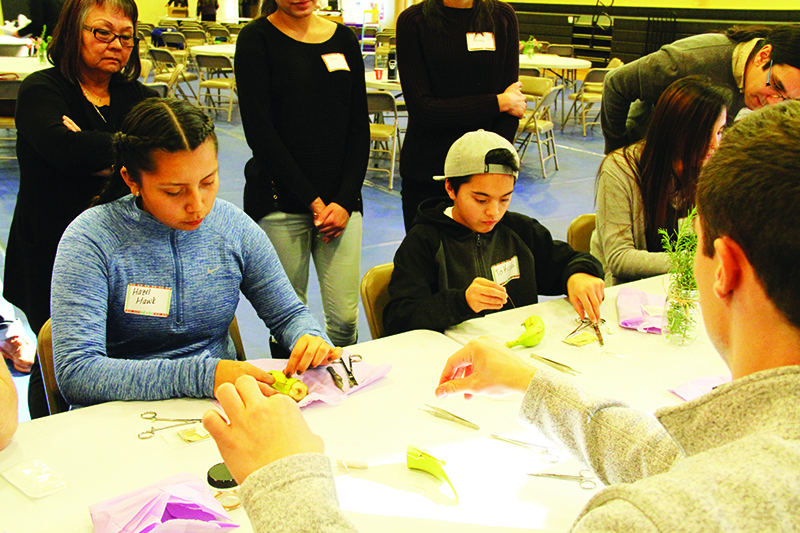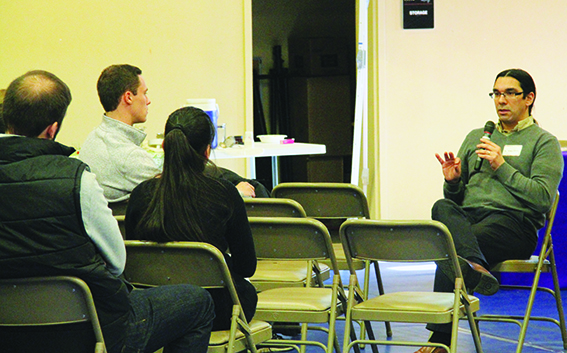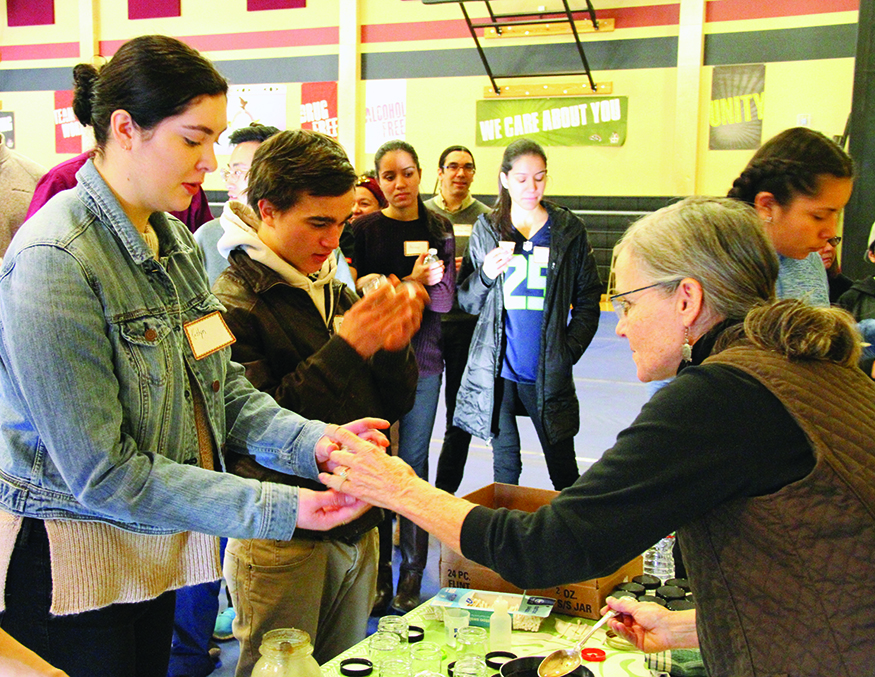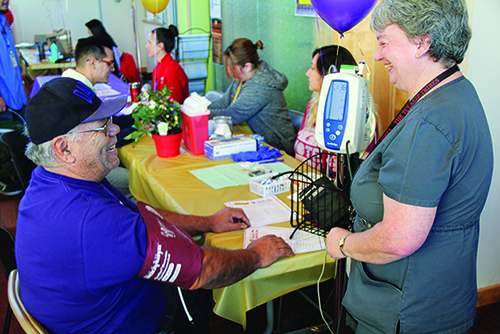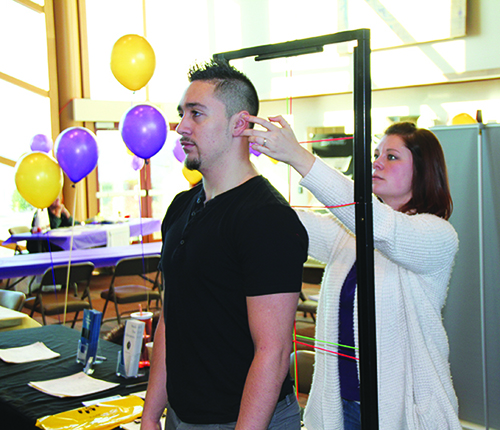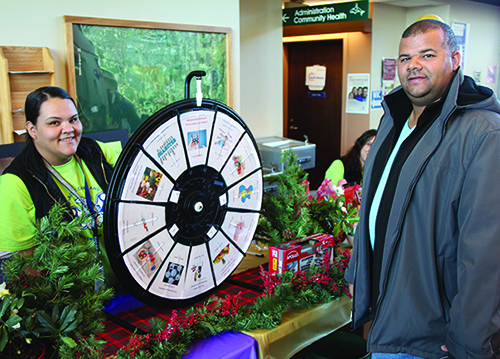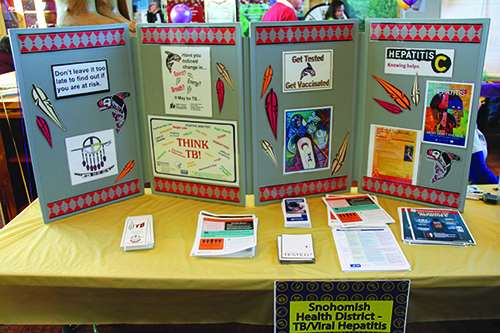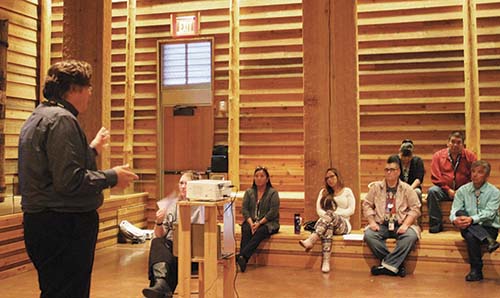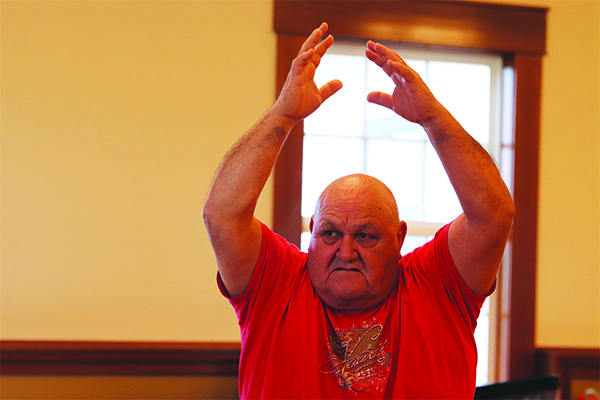
By Kalvin Valdillez, Tulalip News
Originally introduced to the world centuries ago, the practice of yoga continues to uplift the spirit, sharpen minds and improve the overall health of millions to this day. Whether you’re a beginner practicing stretches such as the downward dog or a master yogi who can easily flow into a firefly pose, you are more than likely experiencing the endless benefits of yoga. Those who practice yoga often see a number of physical and spiritual improvements such as flexibility, anxiety relief, injury recovery, and muscle and bone strength as well as a strong sense of balance of the mind, body and soul.
One of the many great things about yoga is the fact that anybody can take it up, no matter where you’re at in terms of your own personal journey and fitness level. Over recent decades, the ancient art of exercise, discipline and mediation has become a popular go-to workout as many yoga classes are held throughout various local gyms and available to stream online on platforms such as YouTube and Glo.com. The majority of avid yogis range in age between their early-twenties to mid-forties, however, new studies are encouraging individuals of the older generations to join in on the fun and incorporate a little yoga and meditation routine into their daily lives.
“Yoga’s such a good experience. Most people are scared to try something new, but I can guarantee if you try this, you will probably like it – a lot,” expressed Tulalip elder, Marvin Jones. “I did yoga once and now I think everybody should try it out. When we get up there in age, we need to do something, some form of exercise. This could prolong your life because it gets you moving and it’s better than just sitting around watching TV. You can do it at home, you can do it anywhere.”
Marvin is the first student of a new program called Mindful Movements brought to Tulalip by the SNAP-Ed and the Diabetes Care and Prevention programs. On the morning of February 19, Marvin sat in a circle and carefully followed the instruction of Autumn Walker, Diabetes Care and Prevention volunteer, who guided the class through an hour long yoga session. Autumn encouraged Marvin to try new poses but also to know his own personal limits as they focused their attention on breathing techniques and gentle stretches.
“The intention teaching this class is to provide a space where people can take care of themselves and have some thoughtful reflections on what works for them, both with their mind and with their body,” Autumn explained. “There’s a lot of benefits to yoga and meditation. A lot of our lives are filled and busy, so setting aside some time where we can be quiet and focus on our wellness is beneficial. We can really find some movement and warmth with the stretching of the muscles, which can ease any pain people have with their joints and really facilitate flexibility of joints over time. If these motions and activities are practiced regularly, they can promote good circulation as well as the healing and wellness of the joints and muscles of the body.”
The first of many gatherings, Mindful Movements is held every Tuesday and is catered to the local elders of the community. Throughout the majority of the class, the students are in a seated position as they delicately flow through each pose for a relaxing exercise. A visible smile that seemed to indicate relaxation and ease grew wider and spread across Marvin’s face the further the class progressed.
“I liked sitting in the chair, I found it a lot easier,” he said. “It’s great for people that can’t stand too long. My left leg is weaker and sometimes I can stand long periods and other times I can’t. If I can sit down and do it, it makes it a whole lot easier because I know I won’t fall. Today I was able to work on my neck, back and shoulders – that’s my main concern because I have weak shoulders. I noticed I got a little sore but that’s a good thing. It goes away after a little bit and you’ll get used to it because exercise helps make you stronger.”
According to many experienced yogis, yoga is absolutely safe for the older generations. Not only does yoga help elders with balance, mobility, heart health and strengthen the respiratory system and blood circulation, it can also relieve stress, inflammation and pain as well as lower blood sugar levels for those living with diabetes.
After experiencing the benefits of yoga at a few of the Diabetes Care and Prevention Garden Day events, the elders began requesting a class of their own at the Senior Center. SNAP-Ed and the Diabetes program recruited Autumn, who also led the Garden Day sessions, to teach the initial classes of Mindful Movements. After a few months, Autumn will pass the baton to SNAP-Ed Nutritionist AnneCherise Jensen who will take over instructing duties. Originally scheduled to start at the beginning of February, Mindful Movements grew a lot of anticipation from local elders but unfortunately due to the recent snow storms, the first two classes were canceled. AnneCherise extends a friendly reminder that the classes are still occurring and invites the community to participate.
“The elders inspired us as well as the whole aspect of wellness,” AnneCherise stated. “So bring your aunties, grandparents, anybody who is looking for a spark of motivation to stay active and feel good. We welcome everybody. It’s suitable for all fitness levels and ages. If you have any injuries or disabilities, we’re able to work around it, we work with everybody’s needs.”
Autumn adds, “We really want the class to be accessible for everybody to come and participate in the parts that work for them and to leave feeling refreshed and rejuvenated as well as with a new curiosity about how their bodies operate and what they’re able to do with them. They can take some of these stretching exercises home and incorporate them into their everyday lives. We want people to leave feeling empowered, like yes, I can participate in this program that’s good for my wellness and yes, I found some physical activities that work for me.”
Mindful Movements is held every Tuesday at the Dining Hall between 9:00 a.m. and 10:00 a.m. For further details, please contact SNAP-Ed at (360) 716-5632 or the Diabetes program at (360) 716-5642.
